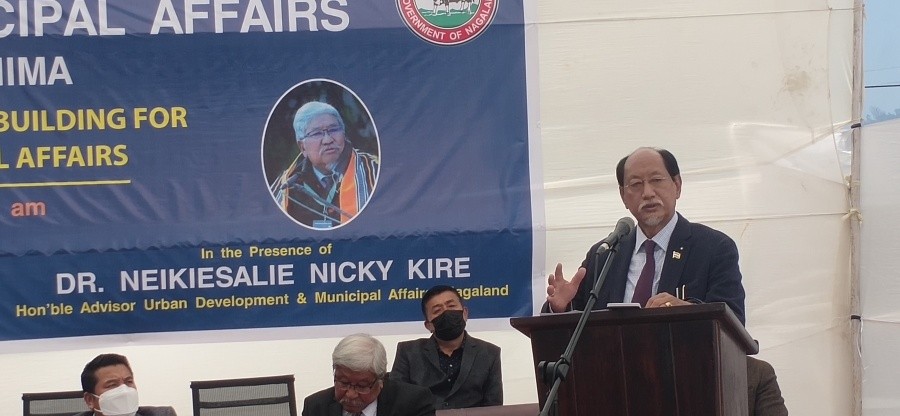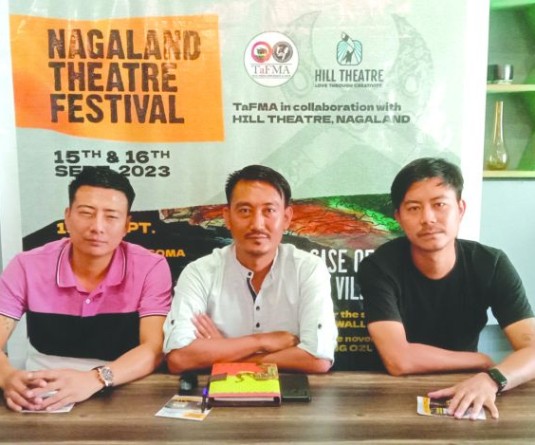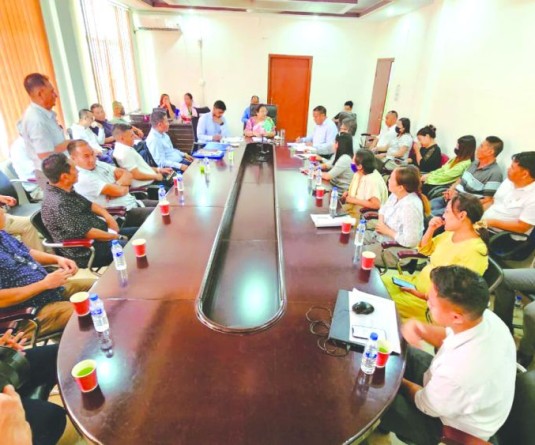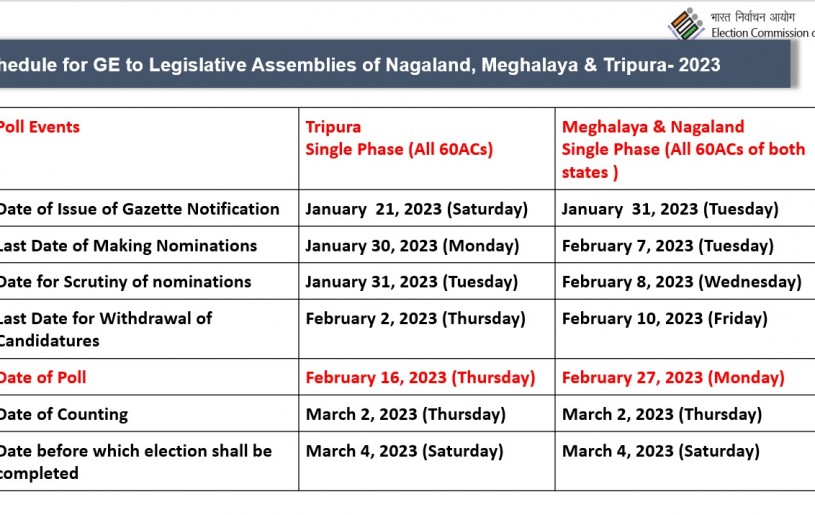Chief Minister Neiphiu Rio addressing the inaugural function of the Directorate of Municipal Affairs office on March 2.

Morung Express News
Kohima | March 2
With the state of Nagaland recording a decadal growth of 67.28% as against the national average of31.80%, Chief Minister Neiphiu Rio underscored the need to have regulatory systems and reforms in the state’s towns and cities.
Inaugurating the new office building of the Directorate of Municipal Affairs, Kohima on Wednesday morning, Rio said, “unless we have a regulation to bring a system, modern town planning and building bye-laws our cities it will not be liveable.”
The Chief Minister observed that the state is “taking a mad rush to urbanisation without understanding the concept of rural local bodies, panchayats and VDBs and the urban local bodies,” and asserted the need for a ‘regulation to bring in a system,’ lest the cities become unliveable as more and more people are rushing to the urban areas.
Mention may be made that the Nagaland Building Bye-Laws was already passed by the Nagaland Legislative Assembly. However, with some practical difficulties and technical lacunae that cropped up while trying to implement, the first proposal for Amendment was made in 2001 and the second in 2012 needing further amendments, with no outcome till today.
Urban & Rural Local bodies – two different entities
Observing that there is a lot of confusion and conflict between urban local bodies and rural local bodies, Rio emphasised that they are ‘two different entities by tradition.’
He explained that Nagas are exempted from the Panchayati Raj due to the special constitutional provision of Article 371 (A), and continue to function with village councils, practice customary laws and village courts with DBs courts as administrative centres.
Nonetheless, he said “our tradition, customary systems and our lives in the villages is totally different, while in urban its modern and combination of all tribes including people from other nationalities.”
“These two are different things but we want to the use the village system in the towns,” Rio noted, while adding that one cannot impose ‘our’ traditions and systems from the villages to the towns and cities.
He expressed hope things will improve gradually with lots of discussions and consultations in days to come.
Two parallel authorities cannot run
Terming the appointment of Goanburas in the towns and municipal areas as a ‘misnomer’ as it is not a village, Rio commented that ‘no two parallel authorities can run together.’
It may be pointed out that earlier in 2021 objections were raised when the state government proposed to change the nomenclature and roles of the GBs in urban and rural areas.
Rio suggested that local colony councils, elected members, representatives and the government need to ponder and bring suggestions on 'how to bring a system.'
We have not learnt of giving
On the reluctance of payment of urban taxes which is solely for the purpose of maintenance and upkeep of the towns, Rio remarked “we know how to take and receive, but we have not learnt of giving out and what are our responsibilities.”
He maintained that the imposition of the tax is for the facilities that are provided to the citizens and not for the state government. “We are used to getting free and want to continue but it is not possible. Paying tax is giving to you to maintain roads, streetlights, sanitations, upkeep of the towns etc. If you don’t give money for your own development, then something is wrong,” Rio remarked.
To this end, the Chief Minister urged the department officials to create awareness in all the municipal and town councils adding “there will be lots of challenges but together with the elected members and responsible citizens, we can strive to live a modern life in the urban cities.”
Identify local market places
Rio also suggested on the need to identify local markets and local spaces facilities where all localised events such as farmers’ markets can be conducted, so that women can do business comfortably.
He recommended that government should identity a place— government land or buildings if the location is suitable, or can even buy land to build farmers’ markets. This, he said would be ‘much more respectable for our women vendors.’
While the municipal and town councils are creating numerous assets, Rio expressed concerns about how the facilities can be managed and utilised. While urging the department to work out a formula, he also suggested privatisation could be an option that can not only generate employment but also ensure that the properties are well taken care of lest ‘abusing of public properties becomes an eyesore.’
Waste management
is still a concern
Though there have been visible improvements in roads, drainages, cleanliness, etc., in the last few years, Rio said waste management still remains a concern.
While emphasising on the continuous need for towns to remain neat and clean, Rio said innovative ideas should be adopted rather than going the regular ways, and that proper signage should be put up in all wards and colonies with the names of the colony display.
He also suggested that each colony may identify a colour and make a uniform painting of their rooftops, and emphasised on building houses with ‘Naga touch’ with Naga designs and motifs.
“Tourists come to our state for eco-tourism to see our traditions, way of life and system. This is also to upkeep our identity and our town should look vibrant with our motifs and designs,” said Rio.






